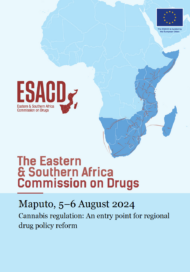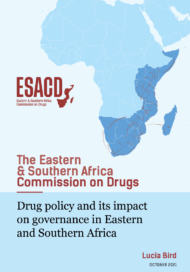Posted on 23 Mar 2007
Producing and trading cocaine, heroin and other illegal narcotics is not only a highly globalized business. It is also a policy challenge to which the international community has historically responded in a rather swift and determined manner. Under the roof of the United Nations, a regulatory regime was established which aims at the elimination of the production, trade, and consumption of outlawed narcotics. In addition, considerable resources are dedicated to a myriad of counter-narcotics programs on the ground. But despite all these efforts every time when the United Nations Offi ce on Drugs and Crime (UNODC) publishes its reports, observers shrug their shoulders in view of the depressing statistics they contain.
A frequently overlooked feature of the fi ght against drugs is the linkages between the production of illegal narcotics and the political dynamics in post-confl ict countries. Afghanistan and Colombia are cases in point. Both countries remind us of the fact that the world map of opium and cocaine production is not only determined by agricultural factors but by the “comparative advantages in the provision of illegality”. Ranking high among the places with such “advantages” are countries with a legacy of violent confl icts. Post-confl ict situations not only attract the cultivation of crops used for the production of illegal drugs. Events in Guinea-Buissau and Haiti illustrate that the same sad logic applies to the international drug mafia’s selection of trading “hot spots” en route to the United States and Europe. It is against this background that a debate has ensued on the policy coherence between the international community’s fight against drugs and its parallel efforts to sustain peace in post-conflict countries.
Thinking creatively about policy coherence in this fi eld serves as the point of departure for this Occasional Paper. The publication is the result of a high-profile expert workshop cosponsored by the Friedrich-Ebert-Stiftung, the Fundación Ideas para la Paz, the Open Society Institute, and the Center for International Cooperation at New York University. It has been written by two outstanding individuals: Barnett R. Rubin, a globally renowned authority on Afghanistan, and Alexandra Guáqueta, a leading scholar on peace and security issues in Colombia. They not only provide an excellent summary of what was an incredibly rich and
complex discussion. Based on an analysis of the relationships between counter-narcotics policy and its impact on peace consolidation efforts, the authors also present a number of innovative ideas and policy recommendations. Inter alia, Barnett Rubin and Alexandra Guáqueta argue for a transitional drug regime that allows an incremental transition of illegal economies to legal ones, as well as for the adoption of a new, confl ict-sensitive approach to the implementation of counter-narcotics policies.



